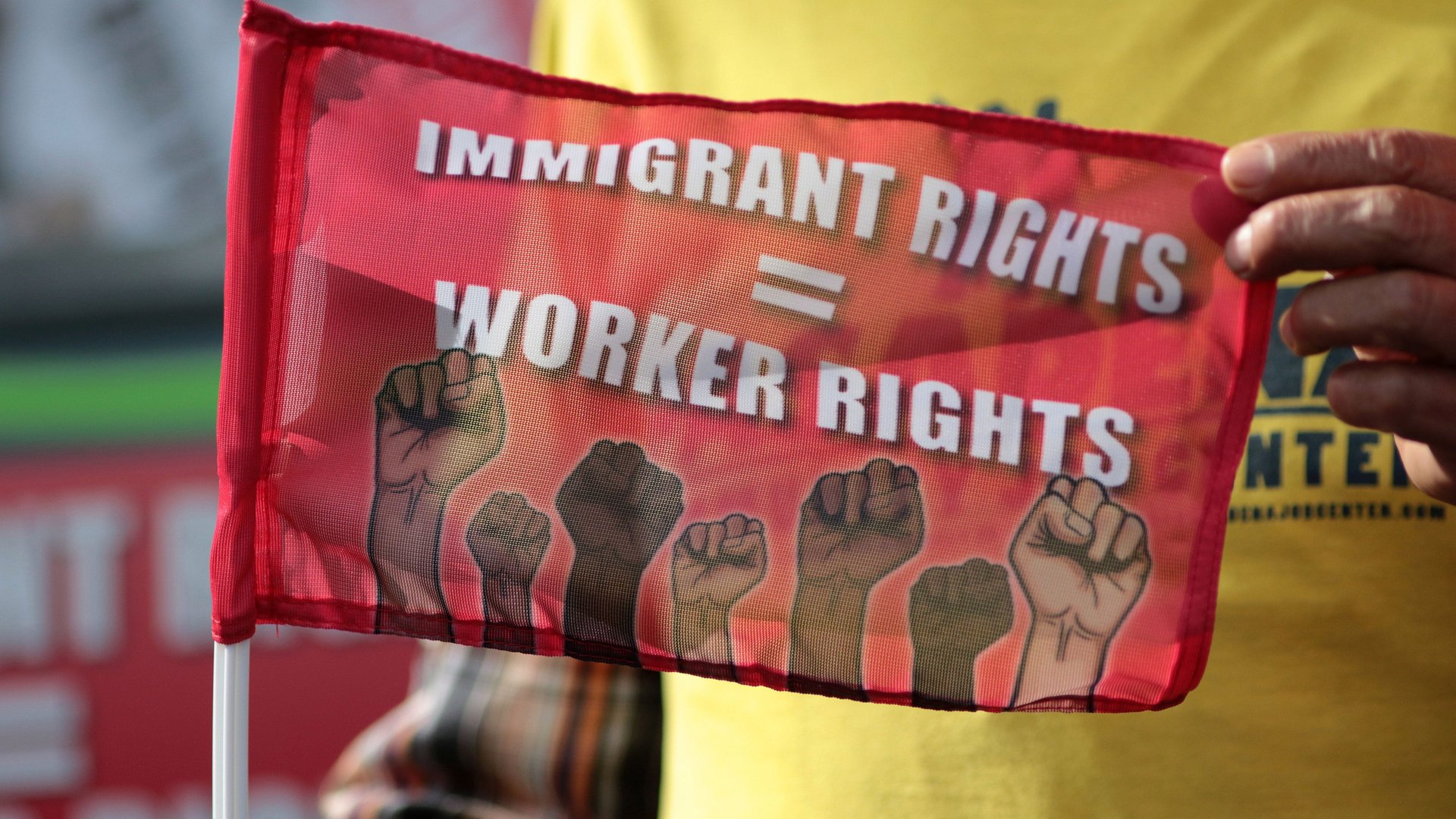Trump’s visa agency is being sued for the H-1B programme’s “arbitrary rules”
The US information technology (IT) industry is raising hell against the work-visa policies brought about recently by the Donald Trump administration.


The US information technology (IT) industry is raising hell against the work-visa policies brought about recently by the Donald Trump administration.
On Oct. 11, Dallas-based ITServe Alliance filed a lawsuit against the US Citizenship and Immigration Services (USCIS) for tightening the noose around the H-1B, a long-term work visa category. ITServe Alliance is a non-profit trade group with over 1,000 members.
“Like every employer in the IT industry, ITServe members have difficulty hiring enough US workers to meet the demand. Our members seek H-1B visas to fill the gap between the supply and demand for IT professionals in these specialised fields,” ITServe president Gopi Kandukuri said in a statement.
Ever since Trump took office in January 2017, the federal agency in charge of work visas has issued a barrage of memos making the criteria to apply further strict and asking for more evidence before granting the visa or an extension, among other things.
These changes seem vindictive to ITServe members who have hired H-1B visa-holders. Almost all of the founding members of the organisation and many of its board members are of Indian origin—most H-1B beneficiaries also hail from India.
In July, ITServe had filed another lawsuit against the USCIS against the Trump administration’s decision to restrict foreign workers to operate only from their employer’s premises and not on third-party sites.
Slower process
The H-1B visa application process has become more cumbersome over the last year, the IT trade body says in its latest lawsuit.
Typically, it used to take between six and eight months to adjudicate initial H-lB petitions selected in the lottery or H-1B extension requests, including the government’s demands for additional information through requests for evidence (RFEs). However, since the last year, timelines for both have been pushed to eight or more months, ITServe claims.
“The processing was so slow that many employees lost the work authorisation status and had to stop working,” Kandukuri said. In some cases, USCIS has even sent approval notices to employers over expired visas.
High investment, low returns?
While the H1-B was earlier typically issued for a three-year period, last year, the USCIS allocated the visas for much shorter periods, further restricting the use of manpower for companies. ITServe said it has evidence to show that the visa was being approved for dismally low tenures like 12 days, 28 days, 73 days, and so on.
This “required employers to immediately reapply and pay new fees,” Kandukuri said. The process became especially burdensome considering the fees for the initial application are already very high. Bills for extensions can run upwards of $3,000 as well.
In addition, granting visas for shorter timelines meant the window to apply for extensions also shrunk this year.
In the meantime, businesses “lack a consistent or predictable roster of employees,” Kandukuri argues, adding that employees, too, are caught in a limbo. “…much of our workforce is constantly under a pending request for (an) extension and could at any moment be forced to leave this country after performing the same job for years.”